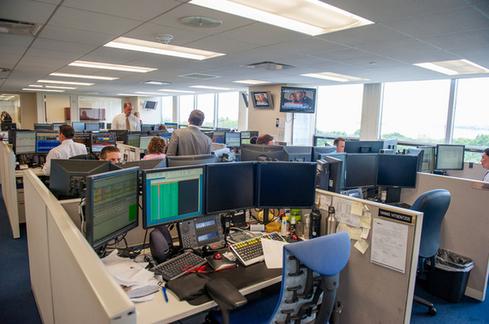11:15 AM
Avoiding Another MF Global
As the search continues for $1.2 billion in missing customer funds that may have vanished during bankrupt MF Global’s last week of frantic trading, hedgers and farmers that placed their trust in the bankrupt FCM, are feeling ripped off.
While investigators and regulators are still searching for the missing funds, the question is what steps can retail traders and institutions take to avoid the next MF Global?
Clearly, futures and commodities traders need to deploy better risk management practices to avoid the next MF Global. One CTA told me that he used MF Global as a bank and had two-thirds of his assets there and one third was with a second FMC. Oddly enough, this firm kept its excess cash in Treasury-bills at MF Global, based on the view that U.S. government would guarantee the return of money invested in T-bills, but those positions were liquidated in the bankruptcy.
There are a couple of tangible steps that would not only serve FCM customers but are good business practices across the financial transaction spectrum, according to Russ Chrusciel, product manager, SunGard’s Global Trading business.
First, people need to talk to others in the trading industry about their relationships with FCMs, says Chrusciel. Since this whole business is still a relationship-based business, Chrusciel says, “Speak candidly with two or three clients about how the relationship from the FCM to the end client is being handled,” advises Chrusciel. However, in MF Global’s case, the firm had a good reputation, and it was easy to be spell bound by the reputation of former CEO Jon Corzine, who was a former senator and governor of New Jersey, and a former CEO of Goldman Sachs.
On a more macro level, customers should get access to potential rating reports from third party firms, adds Chrusciel. The problem, here, however, is that Standard & Poor’s and Moody’s were late in downgrading MF Global. Both agencies had investment grade ratings on MF Global until after its earnings call in late October. But if customers had checked with alternative ratings firms, they would have spotted the red flags sooner. For example, Rapid Ratings, a quantitatively based ratings firm, had a low rating on the stock as far back as 2009 and downgraded it in 2010 to junk status.
“Our system is reacting to how well a company’s able to withstand a shock from the inside or outside. A company like MF Global was rated 23 — the equivalent of an S&P CCC- and a Moody’s Caa3. It’s not only junk, it’s deep junk,” explains James Gellert, CEO of Rapid Ratings.
The bottom line is that folks to need to diversify their risks when it comes to picking an FCM. “Just like in the trading strategy or in money management, more and more trading firms and money managers are going to use portfolio theory in their FCM relationships,” says SunGard’s Chrusciel. “If they had one primary FCM perhaps they’re going to have accounts with two or three different firms, so they’ll have the ability to conduct their business in some shape or form, says SunGard’s executive.
In the wake of MF Global, no doubt many firms will be evaluating their risk exposures to FCMs and other brokers. Not only are they diversifying the number of FCMs they utilize for executing futures and options trades, but commodity trading advisors and other trading firms are no longer keeping excess margin money at these firms. Unfortunately, it’s believed that MF Global raided the segregated accounts of its customers to margin and collateral calls with counterparties and banks. While MF Global customers are protected on the securities side (up to $500,000 per account) through SIPC (Securities Investor Protection Corp.), there is no such guarantee fund on the futures side. No longer putting all their eggs in one basket when it comes to picking an FCM is probably the most prudent action.
Ivy is Editor-at-Large for Advanced Trading and Wall Street & Technology. Ivy is responsible for writing in-depth feature articles, daily blogs and news articles with a focus on automated trading in the capital markets. As an industry expert, Ivy has reported on a myriad ... View Full Bio






















